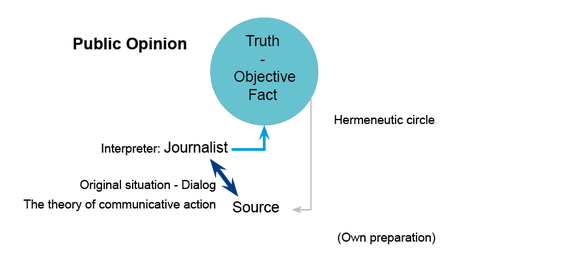15 Feb 2017
The Internet has changed people’s ways of communication, as well as the formation process of public opinion. This network allows a worldwide flow of ideas in a transversal direction and, apparently, there are no borders except languages. This change in personal proximity puts the spotlight on how the international arena is developing and what is understood as the international community.
On a political level, the increase of international interaction involves a growing need for structures to control these interactions. Today, the UN represents multilateral interests, and according to them, their only agency with a specific mandate to promote freedom of expression is UNESCO. At present, the aim of their Communication and Information sector is to empower people by fostering the free flow of ideas, access to information and knowledge. Then, under the umbrella of freedom of expression, the discourse of the UNESCO-CI is an indicator for the political construction of the concept of international community.
To approach how concepts are constructed, we combine the hermeneutic circle theory with the theory of communicative action. Then, it is inferred that concepts are a dialog over time between a community and its interpreters. From this perspective, a concept is a process carried out by speakers during socialization, and therefore, they are dependent on the spoken language. Furthermore, changes in meaning imply a variation in shared social values.
The diagram above shows this combination of theories applied to the public opinion formation process. It reveals that a crisis in journalism reshapes social values and modifies the truth-objective fact. Then, the post-truth Age becomes a matter of time, but what is the role of language in this process?
To evaluate how the concept of international community is being constructed, we compare the political and social discourse via two indicators: the UNESCO-CI and the Wikipedia community. We compare the negotiated discourse of the UNESCO-CI member states with the consensual discourse of the Wikipedia community, a network organization. This comparison is made in three languages: English, French and Spanish and, it will show the distance between the political and the social discourse in each language.
The discourse of the UNESCO-CI is analyzed from their press releases over the period 2010-2014 in these three languages. Results suggest that the UNESCO-CI discourse is dependent on the language used, even if international organisations are of an intercultural nature. Furthermore, the most frequent country names are those in the imaginary line between North and South, such as Mexico, Haiti, Morocco, Pakistan and countries in the northern border with the Arabian Peninsula.
During the visit at the OII, I will be exploring the Wikipedia community, taking into account the inequality on access and generated content, showed by Graham, M., Hogan, B., Straumann, R. K. and Medhat, A., in Uneven Geographies of User-Generated Information: Patterns of Increasing Informational Poverty (January 21, 2014).
